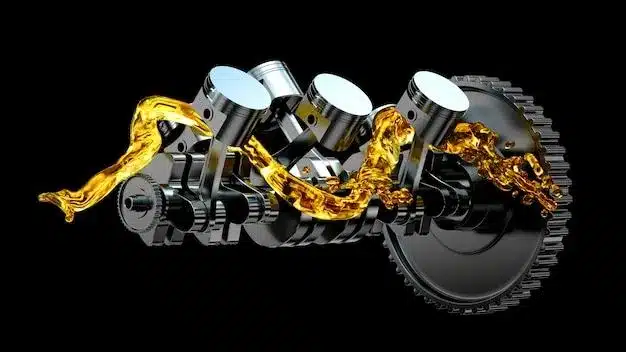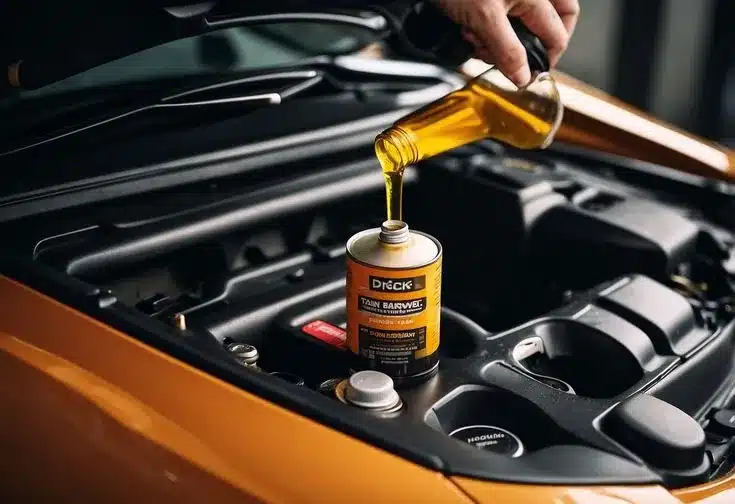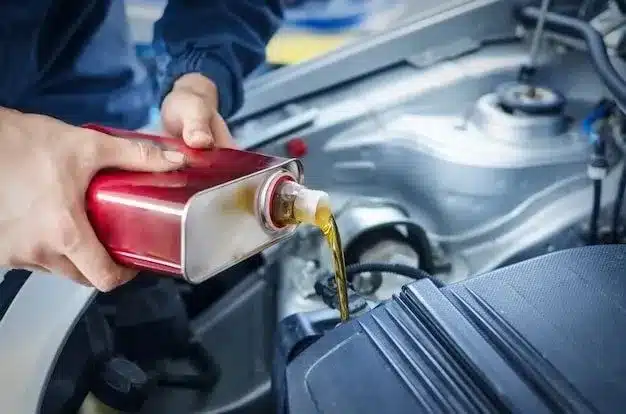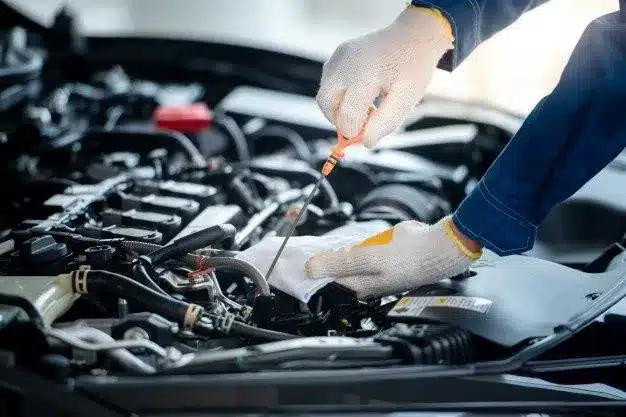Are vehicle performance additives a miracle fix for your engine, or just expensive snake oil dressed up in shiny packaging?
These products promise smoother rides, better fuel economy, and longer engine life. But with so many bold claims and conflicting advice online, it’s hard to know what works and what’s just clever marketing.
However, in this no-fluff guide, we’ll cut through the hype and give you straight answers.
Whether you’re driving a high-mileage sedan or a turbocharged beast, you’ll discover when additives make sense, which types deliver real results, and how to choose the right one without wasting your money.
What Are Vehicle Performance Additives?

Vehicle performance additives are chemical products. You add them to your car’s fluids. They help your vehicle run better and last longer.
What Do They Do?
- Clean your engine
- Reduce friction and wear
- Boost fuel efficiency
- Make driving smoother
- Protect engine parts
Where Do You Use Them?
You can add performance additives to:
- Fuel – to clean fuel lines or boost power
- Oil – to reduce engine friction
- Transmission fluid – to improve shifting
- Coolant – to prevent rust and overheating
A Quick History
Additives have been used since the 1950s. They became popular as engines improved.
Over time, they’ve become more advanced. Today, many drivers use them to maintain older cars or enhance performance.
However, they’re not magic. However, when used, they can significantly help your car.
You may also enjoy reading: Why cheap cars are not like Ferraris?
Types of Vehicle Performance Additives (with Examples)

There are various types of vehicle performance additives, each serving a distinct purpose.
They go into various fluids in your car to improve how things run. Let’s break them down.
1. Fuel Additives
Fuel additives are added directly to your gas tank. They clean the fuel system and improve the engine’s fuel efficiency.
Octane Boosters
Raise the octane level in gasoline. Help prevent engine knocking. Useful for high-performance or turbocharged engines.
Injector Cleaners
Clean fuel injectors and valves. Improve fuel spray and combustion. Help restore lost power and fuel economy.
Ethanol Fuel Stabilizers
Keep fuel fresh, especially if your car sits for a while. Reduce water buildup caused by ethanol-blended fuels. Prevent corrosion in the fuel system.
2. Oil Additives
Oil additives mix with your motor oil. They protect the engine and help it run smoother.
Friction Modifiers
Reduce friction between engine parts. Improve performance and help the engine last longer.
Detergents & Sludge Removers
Clean dirty engines. Break down sludge and buildup. Keep internal engine parts clean and free-flowing to ensure optimal performance.
Viscosity Enhancers
Help oil stay thick at high temperatures. Maintain proper oil pressure and engine protection.
Transmission Additives
Transmission additives are added to your transmission fluid. They protect gears and make shifting smoother.
Smoother Shifting Agents
Reduce rough or delayed shifting. Make automatic gear changes more fluid.
Leak Stoppers
Seal minor leaks in old or worn transmissions. Help extend the life of seals and gaskets.
Anti-Wear Additives
Reduce metal-to-metal contact. Protect gears and internal parts from early wear.
3. Radiator & Coolant Additives
These go into your coolant system. They help manage engine temperature and prevent corrosion.
Anti-Corrosion Additives
Protect the radiator, water pump, and cooling system from rust and scale buildup.
Heat Dissipation Enhancers
Improve how the coolant handles heat. Help prevent engine overheating, especially in hot climates or during heavy use.
However, using the correct type of additive at the right time can keep your car healthier, cleaner, and running stronger for longer.
You may also enjoy reading: Why Porsche Electric Vehicles are heavy?
Benefits of Using Additives (And When They Work)

So, what’s the real deal with vehicle performance additives? Are they just fancy labels, or do they have a purpose?
Here’s what you need to know:
When used correctly, additives can enhance your car’s performance. But they only work in certain situations, not as magic fixes.
Let’s break it down.
1. Fuel Efficiency
Some fuel additives are designed to clean the fuel system. Over time, dirt and carbon build up in fuel injectors and valves. This buildup reduces fuel economy.
What happens when you use fuel system cleaners?
A test by the AAA found that top-tier fuel with additives improved fuel economy by 2% to 4%. That’s real savings over time, especially for older vehicles or high-mileage cars.
2. Engine Protection
Oil additives help reduce engine wear. They coat moving parts, reduce friction, and keep the engine running smoothly.
Real-world example
A study by Engineering Explained showed that friction modifiers in oil additives lowered engine temperature and wear during long drives.
That means less stress on your engine and longer life overall.
3. Reduced Emissions
Dirty engines burn fuel less efficiently. That leads to more smoke and pollution.
Additives that clean the combustion chamber can help lower carbon buildup, and that means fewer emissions.
One fuel treatment brand, after EPA-certified testing, claimed a 10–15% drop in CO emissions in high-mileage vehicles after regular use.
4. Extended Engine Life
Additives are like vitamins for your engine. They don’t replace good maintenance, but they can help your engine last longer when used regularly.
This matters most if:
- Your vehicle is older.
- You drive in harsh weather.
- You tow or carry heavy loads.
A test conducted by Popular Mechanics found that older trucks using oil and transmission additives exhibited smoother performance and fewer breakdowns over 12 months.
However, additives work best as a preventive tool, not a repair. They help when your car is still healthy, or just starting to show signs of wear.
If your engine is already failing? No additive will save it. But if you use the right product at the right time, you can boost fuel efficiency, protect your engine, and reduce emissions.
You may also like to read: List of the most expensive cars in the world.
Common Myths and Misconceptions

Vehicle performance additives are misunderstood. Bad advice spreads fast. And myths? They’re everywhere.
Let’s clear things up before you waste money — or worse, damage your engine.
Myth #1: “Additives Will Fix a Dying Engine”
Nope. Additives are not magic potions.
They can help a healthy engine run better. They can clean carbon deposits, reduce friction, or protect moving parts from wear and tear.
But if your engine is already knocking, smoking, or struggling to start? No additive is going to save it. What you need is a mechanic, not a bottle of octane booster.
Truth: Additives work preventively. They’re not a one-stop solution for engine repair.
Myth #2: “All Additives Are the Same”
This one’s dangerous.
There are fuel additives, oil additives, coolant enhancers, and transmission treatments. Each is made for a specific job. Using the wrong one or dumping them in blindly can backfire.
Some are designed for diesel, while others are designed for gasoline. Some clean, others protect. Know what you’re using.
Truth: Every additive serves a different purpose. Read the label. Match the product to your car’s needs.
Myth #3: “More Additive = Better Results”
You wouldn’t take five painkillers instead of one, right?
Same goes here. Overusing additives can harm sensors, clog filters, or even thin your oil too much. More is not better, it’s often worse.
Truth: Always follow the recommended dose. Overdosing won’t double the benefits; it might double your repair bill.
You may also read: What is the most valuable Rolls-Royce?
How to Choose the Right Additive (Buyer’s Guide)

Picking the right vehicle performance additive doesn’t have to be confusing. Just follow these three easy steps, and you’ll get the one that’s best for your car.
1. What Kind of Car Do You Have?
Your car type matters.
- Gas or Petrol Car? → Look for fuel additives made for gas engines.
- Diesel Car? → Only use diesel-safe additives.
- Old Car with Lots of Miles? → Try high-mileage oil additives for better engine protection.
- Fast Sports Car? → You might need octane boosters to boost power.
Never use the wrong type. It won’t work, and might even hurt your engine.
2. Understand the Words on the Bottle
Additive bottles are filled with complex terms. Here’s what they mean:
- Friction reducer = Helps engine parts slide better
- Injector cleaner = Cleans the fuel system
- Viscosity improver = Keeps oil thick and strong
- Octane booster = Improves fuel burn for increased power.
- Sludge remover = Cleans dirty gunk from inside the engine
However, if you are looking for what matches your goals, then you should consider:
- Want better gas mileage? → Fuel cleaner
- Want a smoother engine? → Oil treatment
- Want a cooler engine? → Coolant booster
3. Check for Good Certifications
Good additives will say something like:
- EPA Approved – Safe for the environment
- OEM Approved – Tested by real car makers
- Made for [your fuel type] – Diesel, gasoline, etc.
If it doesn’t have any certifications or looks fake? Don’t buy it. Stick to trusted brands.
Quick Tip
When in doubt, ask:
- What does my car need?
- What fluid am I adding it to?
- What result do I want? (Better fuel economy? Engine protection? Smoother drive?)
Answer those, and you’ll find the right additive like a pro.
You may also like to read: What is the safest car in the world?
When Not to Use Additives
Adding power boosting additives to your car does not always lead to better performance and quality. But it also harms your engine as well as the environment.
As shown, it causes neuropsychological effects like memory impairment and motor dysfunction with chronic exposure. But when they are widely used everywhere.
However, do not use them when..
- Engines under warranty
- Poor-quality or unverified products
- If your vehicle already runs perfectly with regular maintenance
Conclusion
Performance additives are not just chemicals that boost your car’s speed and performance, but also reduce the age of your vehicle. But too much use also leads to harmful consequences, like environmental health issues.
Also, you should not use these boosting additives at any time in your car. They should be used with precautions and considering the conditions mentioned above.
However, if you want to know more about luxury cars and other performance tips, explore our other blogs as well.
FAQs
1. What are functional additives?
They’re special chemicals in oil or fuel that clean, protect, reduce friction, or prevent corrosion.
2. Can you use multiple at once?
Yes—but only if they target different fluids and are compatible; avoid overdosing.
3. What is the role of additives in enhancing the performance of lubricating oils?
They reduce friction, stop wear, stabilize viscosity, prevent corrosion, and clean engine deposits.

